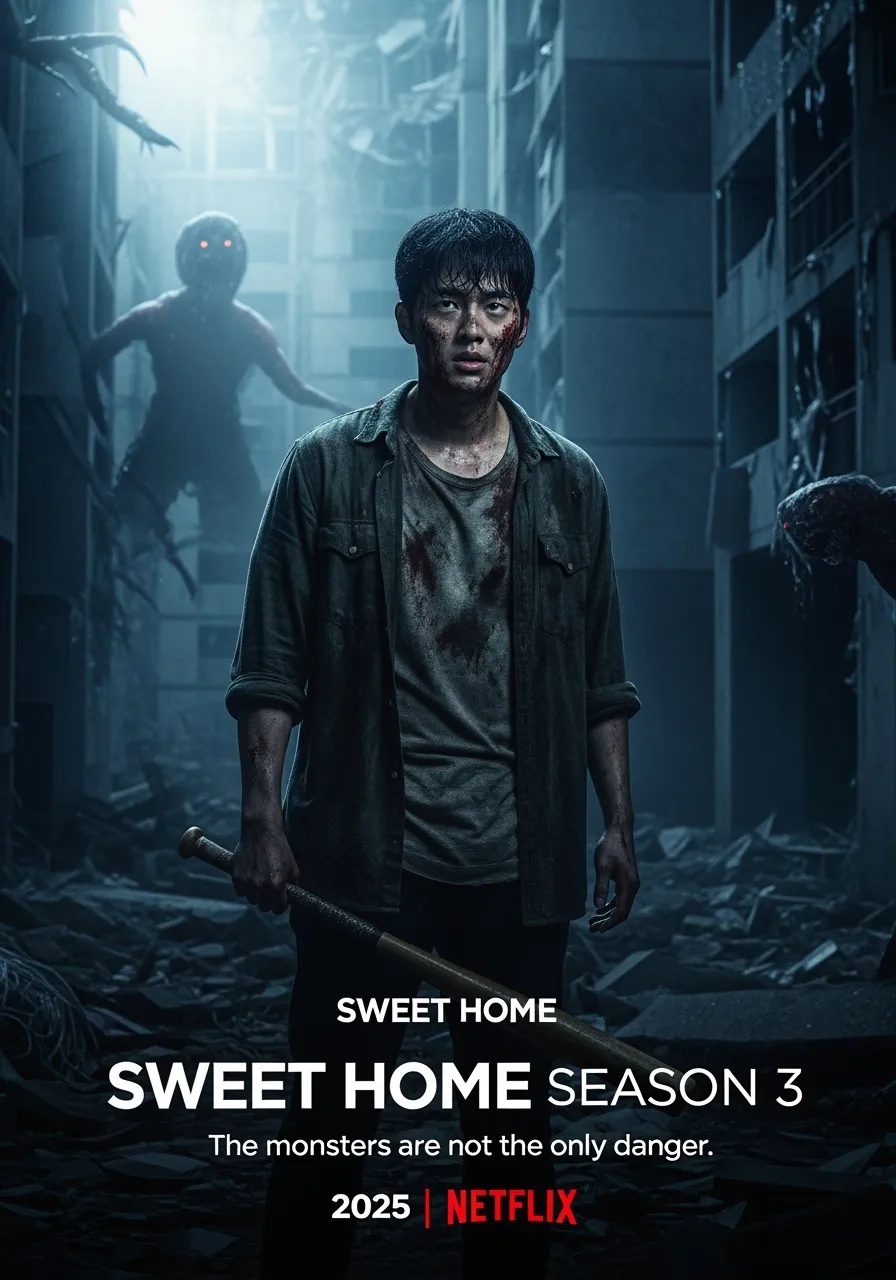In the underworld, survival has no allies. And even love can kill you.
🧨 Introduction: When Justice Walks into Hell
Set in the volatile streets of 1990s Seoul — a time of economic boom, cultural awakening, and criminal expansion — The Worst of Evil is not just a crime series. It’s a descent into a labyrinth of betrayal, survival, identity, and fractured loyalty. A world where the police blur into criminals, and every act of trust might be the beginning of a trap. This isn’t just an undercover thriller — it’s a psychological pressure cooker where love is dangerous and morality is up for negotiation.
📜 Storyline: Three Lives, One Trap
At the heart of the story is Park Jun-mo, a rural police officer living in the shadow of his more prestigious in-laws and emotionally drifting from his wife. When the chance arises to infiltrate Gangnam Union — one of Korea’s most violent drug syndicates — he seizes the opportunity, not just out of duty, but a desperate need for validation.
To do so, he adopts a new identity: a cold, confident criminal with a past dark enough to earn him a seat at the gangster’s table.
At the center of that table sits Jung Gi-cheul, the boss of the organization — a man who rose from DJ decks in nightclubs to ruling the drug corridors between Korea, China, and Japan. Intelligent, strategic, and brutally pragmatic, Gi-cheul doesn’t trust easily. But there’s one person he never forgot: Yoo Eui-jeong, his first love… and now Jun-mo’s wife.
As Jun-mo ascends the ranks, his past collides with Gi-cheul’s present, and Eui-jeong finds herself torn between the man she married and the ghost of a man who once owned her heart. Loyalty fractures. Secrets surface. And in this deadly triangle, no one remains innocent.
🎭 Characters: No Heroes, Only Survivors
-
Park Jun-mo (Ji Chang-wook) begins as an underestimated cop, but transforms into a figure that’s hard to define — part hero, part fraud, part victim of the mission he accepted. His gradual erosion of identity is central to the emotional core of the show.
-
Jung Gi-cheul (Wi Ha-joon) is not your average villain. Charismatic and principled in his own ruthless way, he’s a man who believes power is the only protection in a world of betrayal. His love for Eui-jeong isn’t romantic — it’s possessive, haunting, and ultimately destructive.
-
Yoo Eui-jeong (Im Se-mi) is the anchor between both men. A respected detective in her own right, her silence hides more pain than either realizes. She’s not just collateral in their war — she’s the trigger neither of them can control.
-
Lee Hae-ryeon (BIBI) stands as a silent predator. She’s not sentimental, not romanticized — she’s a criminal mastermind in her own right, and her arc offers a counterweight to the male-driven chaos, proving that in this game, gender doesn’t define power — strategy does.
🎥 Style & Atmosphere: Modern Noir in Retro Seoul
Visually, The Worst of Evil is stunning. The show captures the raw, neon-drenched aesthetic of 1990s Gangnam: smoky clubs, tight alleys, and hotel rooms reeking of secrets. The cinematography leans heavily on shadow, reflection, and silence — letting the tension simmer between characters instead of relying on loud exposition.
Action scenes are visceral and unromantic. Fights hurt. Guns echo. Blood stains matter. The violence is never flashy — it’s functional, intimate, brutal. Even the quietest moments are taut with danger.
Sound design plays a vital role. Long silences, ticking clocks, the rustle of clothing — everything contributes to a mood of claustrophobia. You never feel safe, and that’s the point.

🧠 Themes: Power, Identity, and the Price of Loyalty
At its core, the series isn’t just about drugs or gang wars. It’s about the loss of self.
Jun-mo loses track of who he is. Gi-cheul can’t let go of who he was. Eui-jeong watches both men spiral toward self-destruction, caught in a past none of them escaped.
The show also critiques institutional failure: how justice systems force good people to lie, how power doesn’t protect but corrupts, and how love becomes twisted when buried under secrets. No one here is innocent. They’re just better liars.

🔥 Strengths
-
Complex moral storytelling: No clear villains, no clear saints. Just broken people in a broken system.
-
Stellar performances: Ji Chang-wook brings quiet desperation; Wi Ha-joon delivers charm laced with dread.
-
Emotional intensity: The triangle between Jun-mo, Gi-cheul, and Eui-jeong anchors every plot twist with emotional weight.
-
World-building: The 1990s setting is more than nostalgia — it’s a living, breathing pressure chamber.
❄️ Limitations
-
Slow-burn pacing: Viewers expecting constant action may struggle with the dialogue-heavy structure.
-
Emotional fatigue: The relentless tension leaves little room for relief — but that’s the point.
-
Ambiguity overload: Those wanting clear resolutions might be left unsettled.
🎯 Final Verdict
The Worst of Evil is a masterclass in narrative tension, a labyrinth of power, pain, and fractured love. It’s a crime series with the soul of a tragedy — beautifully acted, brutally written, and unapologetically unforgiving. There are no saviors here. Only people who’ve lost too much to turn back.

Rating: ★★★★★ 9/10 – A haunting portrait of how far people will go to reclaim control in a world that took everything.
-1751246702-q80.webp)
-1747716802-q80.webp)


-1740282288-q80.webp)